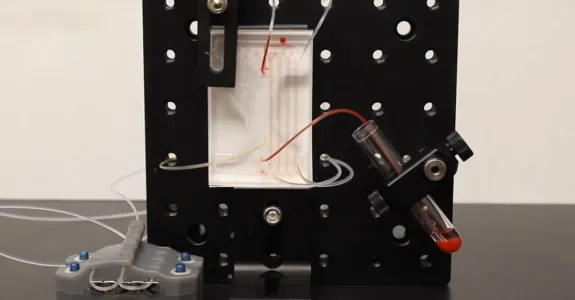
The focus of the research conducted by Dr. Kari Nadeau's group at the Sean N. Parker Center for Allergy and Asthma Research is to find safe and effective treatments for allergy and asthma. In 2014, they demonstrated that oral immunotherapy can simultaneously and successfully achieve desensitization for multiple food allergens (up to 5) and that adjunctive omalizumab therapy, by blocking free IgE, facilitates and decreases time to desensitization. Additional immunotherapy trials with adjunctive omalizumab (peanuts and milk) have supported these findings. The data from these clinical trials have provided initial evidence for the safety and feasibility of oral immunotherapy for food allergy and have paved the way for further innovative research in the field. Currently, the Nadeau group has in progress a number of novel immunotherapy trials for food allergy and asthma. Some of these include the use of skin patches for delivering allergens, the use of novel immunoglobulins (anti-IL-33, anti-IL-23), and DNA vaccines. On analyzing data obtained from these clinical studies, they hope to better understand the mechanisms that underlie allergy and asthma.
The focus of their basic research is to understand the characteristics of the allergens that mediate clinical reactions, the role of the environment and genetics in increasing risk of allergies and asthma, and the molecular, cellular, and genetic differences between those with allergies and asthma and those who are immune tolerant or those who achieve desensitization through immunotherapy. Their multifood allergen immunotherapy studies have enabled determination of associations and cross-reactivities between different food allergens and have further assisted us with epitope mapping, identification, and characterization of allergenic components of foods that induce clinical reactivity. Data from these studies may, in the future, enable therapeutic targets for food allergies.
Dr. Nadeau's group is particularly interested in the role of T cells in immune tolerance. Using state-of-the-art techniques, such as allergen-specific T-cell sorting and single-cell gene expression, they have successfully demonstrated that it is possible to monitor patients undergoing immunotherapy by high dimensional immunophenotyping of T cells and predict the success of future treatments. These findings can be used to impact patient management in real time. The group has also shown that environmental factors such as exposure to small particulate matter from diesel and industrial fumes impair regulatory T cell function in asthma and that air purifiers that reduce indoor fine particulate matter (<2.5 micrometer diameter) significantly improves nasal symptoms in children with allergic rhinitis. Data from our immunotherapy trials indicate that epigenetic modifications may play an important role in regulating allergic disease and asthma and may serve as useful biomarkers for diagnosis and prognosis.
As they move forward, the focus of the Center is to translate our understanding of the basic science underlying allergic disease and asthma to enable novel and innovative clinical studies and induce tolerance through immunotherapy.




